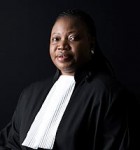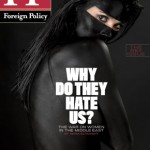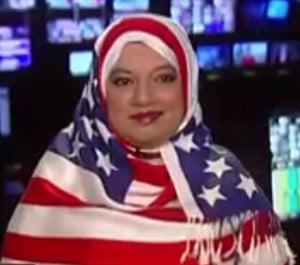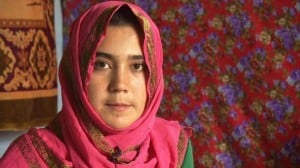From April 19 to April 24, the Association of Women’s Rights in Development (AWID) organised a forum in Istanbul, Turkey on the theme of transforming economic power. Women activists from the Middle East and North Africa (MENA) region in particular spoke about the ongoing struggle to enshrine women’s rights into new constitutions and increase female participation in new political systems. Many Arab women are worried about the increasing influence of conservative Islam in post-revolution countries, and the effect this will have on women and women’s rights. In a session on “Men as Providers,” Dr. Ziba Mir-Hosseini argued that it is key to fight medieval interpretations of the Quran with modern scholarship, such as in how we understand verse 4:34 in the Quran, which addresses the man as a provider for his wife and family.
Amnesty International published a report last week in which it finds an anti-Muslim bias in Europe, especially when to comes to the exclusion of Muslims wearing religious forms of dress, which affects in particular Muslim women. In Belgium, France, The Netherlands, Spain and Switzerland, Amnesty International has found that discrimination towards Muslims exists in numerous forms.
Syria is home to the largest Iraqi refugee population in the world, an estimated one million people. For these refugees too, Syria has become a dangerous place. IRIN features an interview with an Iraqi mother and daughter, who are desperately trying to leave the country.
According to a Human Rights Watch researcher, increasing numbers of Malian women have been raped by rebels in the country’s northern region. Another cause of concern is the implementation of strict Islamic law in certain regions, which make women fear for the relative freedom they are used to.
Egyptian Muslim scholar Mahmoud Abd al-Hafeeth has spoken out against depriving women of their inheritance, which is common in villages and in Upper Egypt.
An Indian mother has killed her daughter for marrying a “substandard youth”. The mother claims not to be sad for having killed her daughter with her own hands. May Allah grant the girl justice and eternal peace.
Bahraini activist Zainab Al-Khawaja was arrested last Saturday during protests, and will be in custody for a week. The daughter of the jailed hunger striker Abdulhadi Al-Khawaja has been arrested before in February and December.
In most neighbourhoods in Gaza, it is difficult for (young) women to opt not to cover their hair, or wear a long overcoat; whether they consider themselves to be Muslim, Christian or non-believers, the pressure to wear the hijab is felt by all.
On a daily basis, Syrian women risk their lives smuggling aid to dissidents, often covering up in a conservative attire, as soldiers feel hesitant to search women, especially those who appear to be pious.
Libyan women played an important role in the fight against the Gaddafi regime, but today they are still fighting discrimination within their own country.
In Afghanistan, it is not easy for women and girls to enroll in education, due to insecurity and cultural barriers, but after a vocational training centre for women opened last year in southern Afghanistan’s Helmand province, over 900 women are now enrolled in its courses.
In Bangladesh, an estimated 20% of girls get married before the age of 15, even though the legal age of marriage is 18. Poverty is an important reason why girls get married off so young, as girls are considered a burden to a family, as they do not provide an income.
By placing basketball hoops and letting pupils play during a break, a Saudi state-run girls’ school has become the first state-run school in the country to openly encourage girls to play sports. This is against the country’s major clerics, who have spoken out against female participation in sports on numerous occasions.
In the predominantly Indian Bohra community, female circumcision is ordered by the sect’s religious leader, who has the sole authority to decide on all religious and temporal matters and to whom all members have taken an oath of allegiance. Speaking out against the practice is therefore considered religious disobedience by many, but the online petition by Tasneem has resulted in 1,600 signatures by Bohra women.
Women’s cafes in Kuwait have been stirring quite some controversy in the media and government lately, as they were several cases found in these cafes that involved indecent behaviour. MPs are now calling for a law to regulate conduct of customers.
In an interview with the Deutsche Welle, German family lawyer Gönül Halat-Mec reflects on last week’s Islam conference in Germany and on gender inequality within the Muslim community.
In the predominantly Muslim Russian republic of Kabardino-Balkaria, 150 mothers went to the streets to protest against the abuse and ill-treatment of those arrested in an attack on security and military facilities in 2005.
Internationally-recognised Iranian activist Narges Mohammadi has been sentenced to serve a six-year prison term. Her family fears for her health, as it seriously deteriorated after she served a prison term in solitary confinement in 2010. May Allah make it easy for her and her family.
An article on Al-Akhbar talks about the difficulties to make drama productions in Syria that realistically portray homosexuality. The focus is on an English-language short film produced by a Syrian producer Muhammad Khair Diab, with the title “A Lesbian Tale.”
Even though Somalia is a difficult place to live as a woman, some Somali women are still able to do more than might be expected, especially outside the regions that are immediately affected by the ongoing conflict.
In an interview with Al Jazeera, Qatari author Amal al-Malki says to be skeptical about what the Arab spring has done for women; she argues that it has only highlighted continuing “second-class citizenship” of women in the region.
Uzbekistan has denied that it practises forced sterilization, saying that only women who want to be sterilized undergo this invasive procedure.
The Guardian/The Observer features an article on Afghanistan’s first female director Saba Sahar, her work and her sacrifices to fulfill her dream.












